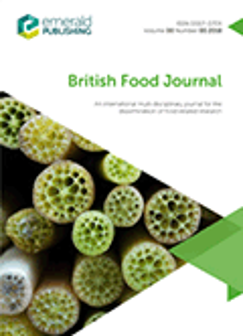|
Autores/as
Mendocilla, Mario; Miravitlles Matamoros, Paloma; Matute, Jorge
|
Abstract
Purpose: The purpose of this study is to empirically develop and validate a practical, consistent and specific scale to assess perceived service quality at the service encounter at quick-service restaurants (QSRs). Design/methodology/approach: Development and validation of the scale involved a five-stage process. Data were collected from 430 customers of a QSR belonging to an international brand located in Barcelona. Surveys were applied immediately after the service encounter, using the face-to-face method. The scale development procedure involved exploratory and confirmatory factor analyses. Findings: The results suggest a specific and parsimonious measurement scale, whose structure comprises 14 items in four dimensions. In contrast to previous studies, this study identified the appropriateness of splitting the interaction quality dimension into two single dimensions, one focusing on the interaction time and other on staff–customer interaction. Furthermore, these indicate that a speedy service, pleasant treatment and food quality are the most valued attributes in QSR. Practical implications: This scale is a useful instrument to administer and assure service quality standards within QSR management systems. Its practical approach and short survey length ease data collection, considering that customers spend short amounts of time in this type of restaurant. Furthermore, it could also be used by franchisors and restaurant operators as a tool to monitor continuing compliance with service quality standards. Originality/value: The resulting scale introduces a novel four-factor structure with high goodness of fit to effectively measure customers’ perceived service quality in QSRs, where the ease of use and speed of gathering client responses are a key factor for successful implementation.
|

WoS
Scopus
Altmetrics

|
|
Publicación
British Food Journal, 17 December 2021, v.123, n.13, p. 241-259
|
